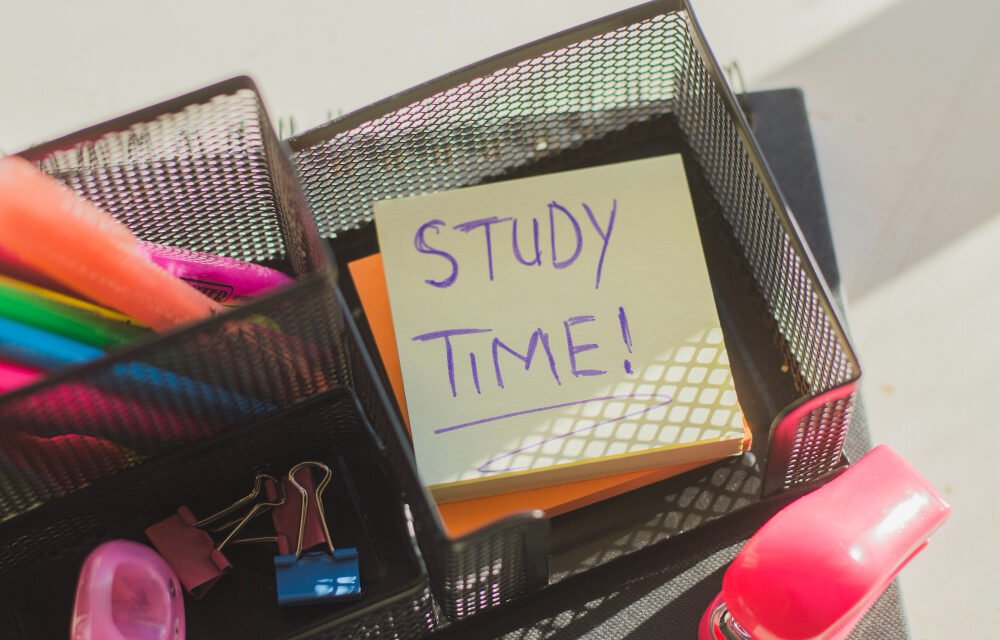Ever wondered how some students seem to effortlessly ace their exams while others struggle to keep up? The secret often lies not in innate genius, but in a well-structured and strategic approach to studying. It’s about working smarter, not just harder. If you’re ready to transform your grades and reduce your stress levels, it’s time to learn the art of structuring your study week like a top student.
This isn’t about pulling all-nighters or sacrificing your social life. In fact, it’s the opposite. A-plus students have mastered the art of balance. They know when to hit the books and when to take a break, ensuring their minds are always fresh and ready to learn.
So, how do they do it? Let’s break down the weekly study structure of a top student.
Monday: Plan and Prepare
The start of the week is all about setting the stage for success. Top students don’t just dive into their work without a plan. They take the time to:
- Review their syllabus and upcoming deadlines: This gives them a clear overview of what needs to be accomplished during the week.
- Create a weekly schedule: They block out time for classes, study sessions, extracurricular activities, and personal time. This ensures that every task has its designated slot.
- Prioritize tasks: Using techniques like the Eisenhower Matrix (urgent/important), they identify their most critical tasks and tackle them first.
Tuesday – Thursday: Deep Work and Active Learning
These are the core study days. Instead of passively reading textbooks, top students engage in active learning techniques that promote long-term retention. This includes:
- The Pomodoro Technique: Studying in focused 25-minute intervals with short breaks in between. This helps maintain concentration and prevent burnout.
- Active Recall: Actively retrieving information from memory, rather than simply rereading it. This can be done through flashcards, practice quizzes, or explaining concepts to a friend.
- Spaced Repetition: Reviewing information at increasing intervals over time. This technique is scientifically proven to enhance memory and is a cornerstone of effective studying. For those looking to improve their communication and presentation skills, which are vital for academic success, consider exploring resources like Jivoice.
Friday: Review and Consolidate
Friday is for wrapping up the week’s learning. Top students use this day to:
- Review their notes from the week: This helps solidify their understanding and identify any areas that need further clarification.
- Take practice exams: This not only tests their knowledge but also helps them get comfortable with the exam format.
- Self-correction: When they make a mistake, they don’t just move on. They take the time to understand why they made the mistake and how to avoid it in the future.
Saturday: Rest and Recharge
Even the most dedicated students need a break. Saturday is a day for rest, relaxation, and hobbies. This is crucial for preventing burnout and maintaining mental well-being. Whether it’s spending time with friends, going for a hike, or simply watching a movie, this is a day to recharge your batteries.
Sunday: Prepare for the Week Ahead
Sunday is a light preparation day. Top students use this day to:
- Briefly review the material for the upcoming week: This gives them a head start and makes it easier to absorb new information in class.
- Organize their study materials: This ensures that they have everything they need for the week ahead and can hit the ground running on Monday morning.
- Get a good night’s sleep: This is non-negotiable. A well-rested mind is a productive mind.
Frequently Asked Questions (FAQ)
Q: How many hours a day should I study?
A: The ideal number of study hours varies from person to person. However, most top students recommend 2-3 hours of focused study per day, in addition to class time. The key is consistency and quality over quantity.
Q: What if I have a part-time job or other commitments?
A: Time management is key. Use a planner to schedule your study sessions around your other commitments. Even short, focused study sessions can be effective.
Q: I get distracted easily. How can I stay focused?
A: Try the Pomodoro Technique, turn off your phone notifications, and find a quiet study space. If you’re still struggling, there are a number of apps and browser extensions that can help you block distracting websites.
Q: I’m not a “morning person.” Can I still be a top student?
A: Absolutely! The best time to study is when you feel most alert and productive. Whether that’s in the morning, afternoon, or evening, find what works for you and stick to it.
By adopting these strategies, you can transform your study habits and unlock your full academic potential. Remember, it’s not about being the smartest person in the room; it’s about having the smartest approach.
03. Internal Backlink
The article includes an internal backlink to https://jivoice.com/hostinger/ using the keyword “Jivoice” in the “Tuesday – Thursday: Deep Work and Active Learning” section.



 Why a Real Student Vacation is Crucial for Success
Why a Real Student Vacation is Crucial for Success  Your University Library: More Than Just Books
Your University Library: More Than Just Books  Protecting Your Intellectual Property: A Student’s Guide
Protecting Your Intellectual Property: A Student’s Guide  Psychology of Motivation: What Drives Students to Succeed
Psychology of Motivation: What Drives Students to Succeed  Fact-Check & Verify Information in the AI Era: Your Guide
Fact-Check & Verify Information in the AI Era: Your Guide  VR and AR in Studies: The Ultimate Student Guide
VR and AR in Studies: The Ultimate Student Guide  Backtest Crypto Trading Strategies: A Complete Guide
Backtest Crypto Trading Strategies: A Complete Guide  NFT Standards: A Cross-Chain Guide for Creators & Collectors
NFT Standards: A Cross-Chain Guide for Creators & Collectors  Decentralized Storage: IPFS & Arweave Explained Simply
Decentralized Storage: IPFS & Arweave Explained Simply  How to Calculate Cryptocurrency Taxes: A Simple Guide
How to Calculate Cryptocurrency Taxes: A Simple Guide  Your Guide to Music NFTs & Top Platforms for 2024
Your Guide to Music NFTs & Top Platforms for 2024  TradingView for Crypto: The Ultimate Trader’s Guide
TradingView for Crypto: The Ultimate Trader’s Guide